Here’s the short list of these 10 Things. You already know them all.
1. Failure is: cruel
2. Failure is: embarrassing
3. Failure is: complete
4. Failure is: suffering
5. Failure is: brutal
6. Failure is: mean
7. Failure is: ruthless
8. Failure is: adamant
9. Failure is: ruinous
In recent years, I’ve given a lecture about the term ‘talent’ at the Illustration Master Class. It’s really a lecture about failure, why to use it, why to embrace it. The lecture entails understanding this thing we all experience, must experience, in our lives, especially involving our artistic skills. Lately though, I haven’t given the lecture because I believe there’s a genuine lack of interest. Either the idea of failure seems unimportant to the process or artists are afraid of encountering it.
I think it’s the fear. This year I spoke about failure several times in my other lectures about composition and my own struggle to survive as an artist. I know the students in the room understand it and I know they have to experience it, but as much as they say they can handle it, they’ll do whatever it takes to avoid it. Including failure to recognize it when it happens.
Nobody wants to fail. Failure is what you get on the way to succeeding. It is a necessary component of success. One cannot avoid it or there simply is no growing from it.
My own growth is dependent upon it, even now. Perhaps even more so at this stage of my painting. Because I’ve painted so long, the failures sometimes need to be overwhelmingly huge in order to keep up with the level of success that I’ve attained. To gain new insight, I have to push against my own ceiling of security. Train for success.
Unfortunately, there is no comfort level with failure. An artist mustn’t see it happening and blithely accept it as part of the process. It has to hurt or it’s not really, actually failing. Failure is complete and utter. It’s awful and it sucks. But if you honestly taste the sting, then you are tasting the clues of success.
Learning to become an artist is all about training, and training is all about embracing your failures, to learn from them and press on. Generally, my lecture to the IMC students is to implore them to utilize the failures that are inevitable and necessary to the process. During the week, they fail in different ways, and in different quantities. In small ways and in large, devastating ways. Some of the students fail again and again and they keep going after it. Other students bury themselves in self-doubt and have a hard time recovering.
What’s hard to grasp, but so important, is that designing a picture several times is supremely good. Training to understand the perspective, values, and depth of composition takes repeated effort. I watched one student this year change his work every day, all day long, doing whatever I told him to do. He kept after it, constantly. By the end of the week, his painting was becoming successful, his best piece yet. And he gained renewed energy and attitude about picture-making.
Several students started painting early, only to scrape the paint off, redraw and repaint by the end of the week. A few barely made it through the pencil sketch. I watched another student bring in a sketch that was ready to paint from day one. Composed well, they had created interest in a very average scene of multiple figures. Talent? Hardly. This person had been coming for 5 years already and was only now beginning to understand the practices and concepts we teach there. After they’d heard my composition lecture every year.
(Sadly, I may have inadvertently put more pressure on this artist to succeed by my gushing compliments about their composition! But they had reached this stage and that may be enough for now.)
Our great institutions of art are not interested in dealing with this most precious teaching tool as they are all about discovery, and not about the process of finding. In short, they are only interested in the talented, as if this springs forth out of nowhere in only the ‘Gifted Ones.’
10. Failure: continues.
No matter where we are in our training to be excellent creative painters, failure follows us like a lovesick puppy, as if it knows we need it. It never goes away, but it does get satiated from time to time. My lecture is most certainly not a pep talk. In fact, it’s about how painful the process can be. It isn’t fun, until you’ve been through it, survive it, and keep going.
I recently heard another of my favorite quotes, this one by Irish playwright Samuel Beckett. I hope you embrace it:
“Nothing else ever. Ever tried. Ever failed. No matter. Try again. Fail again. Fail better.”


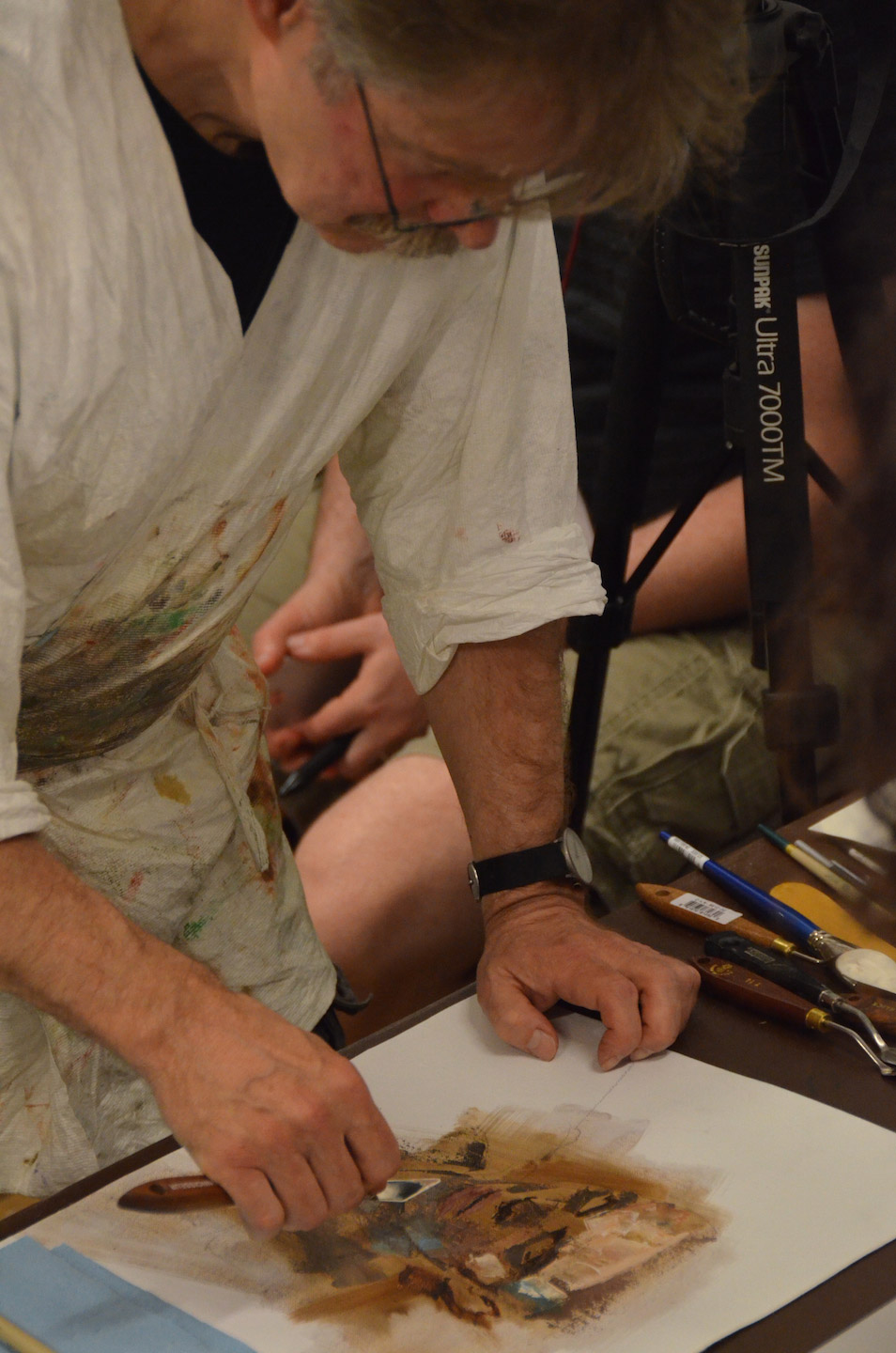
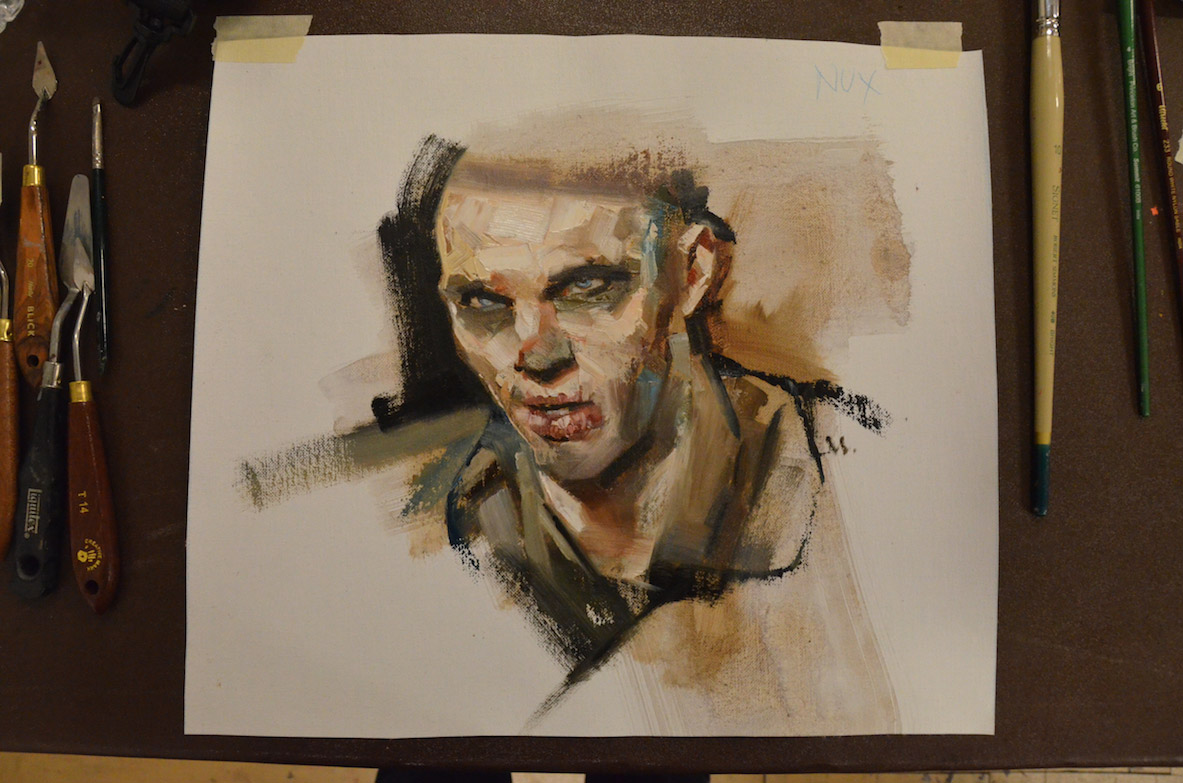
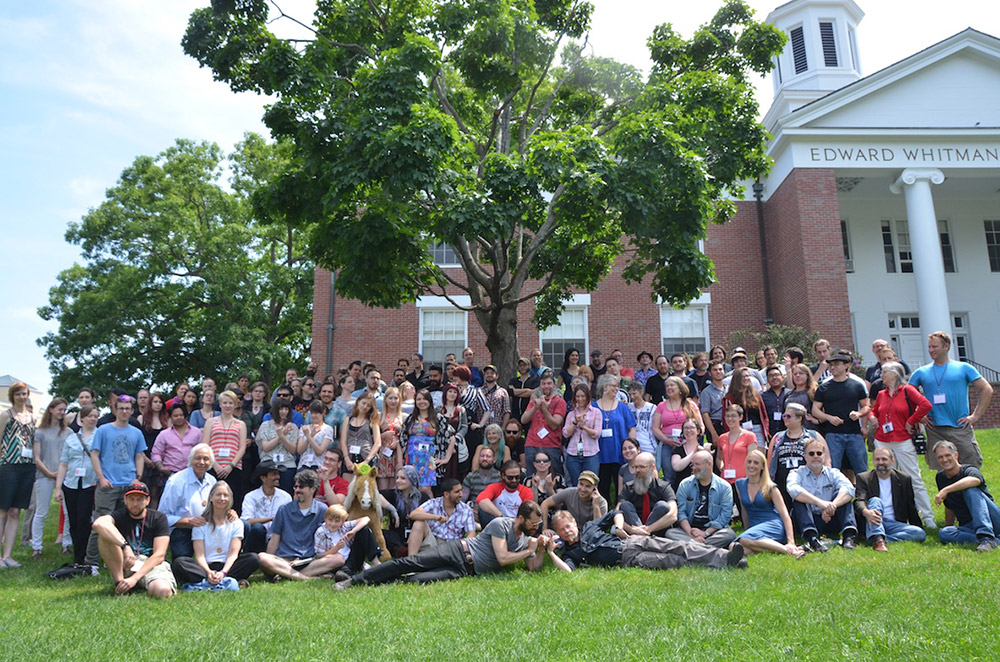
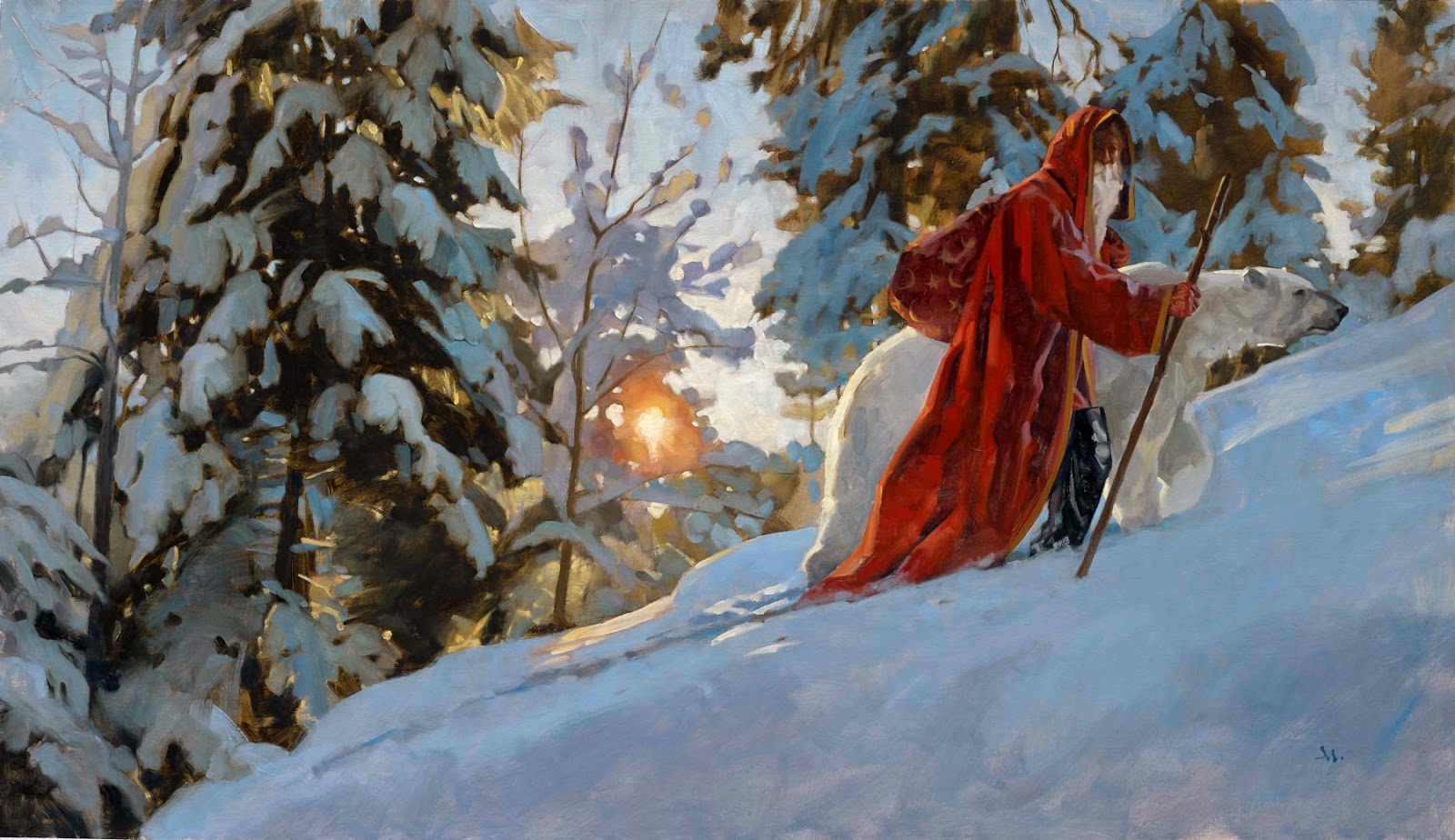
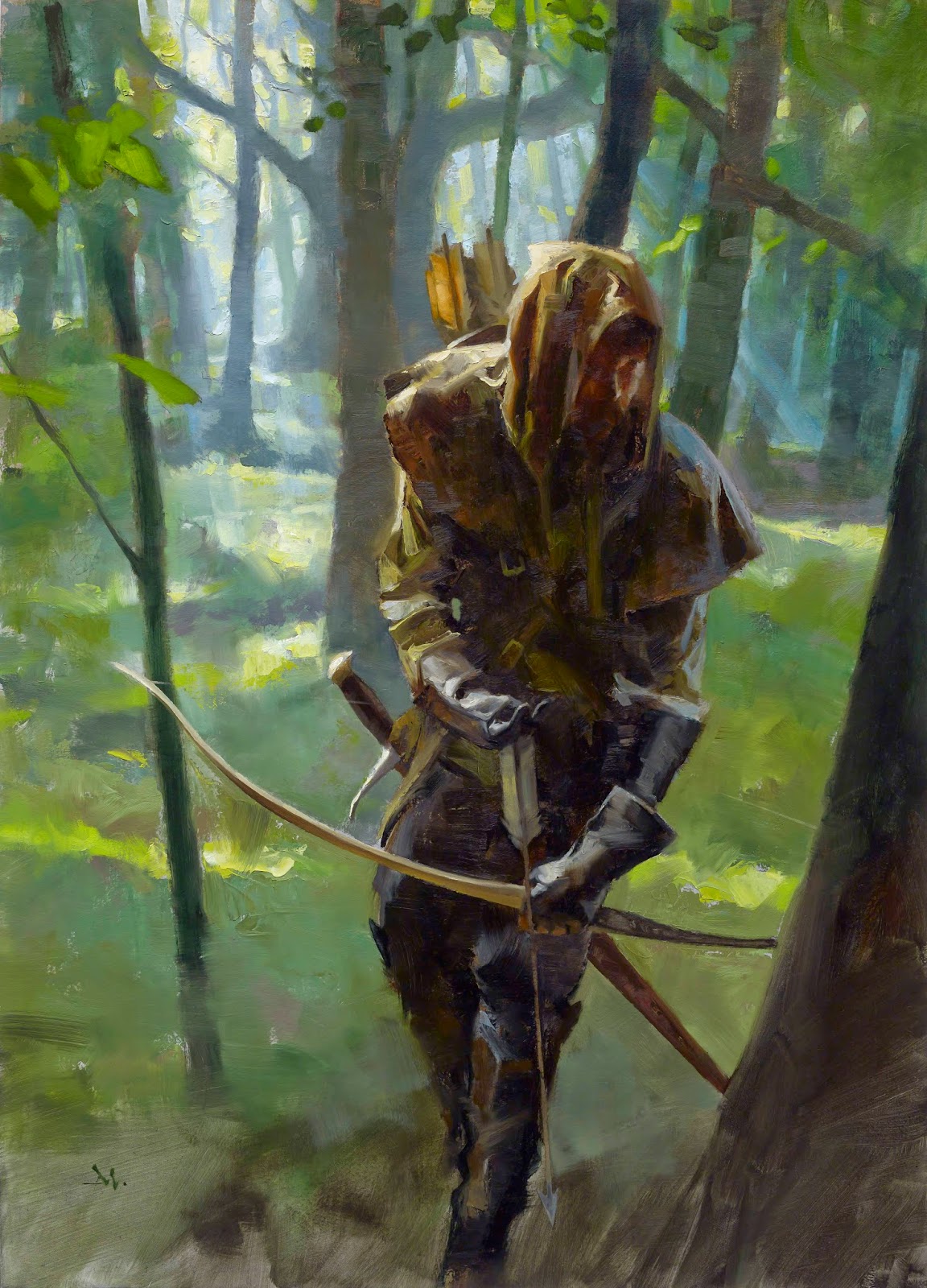
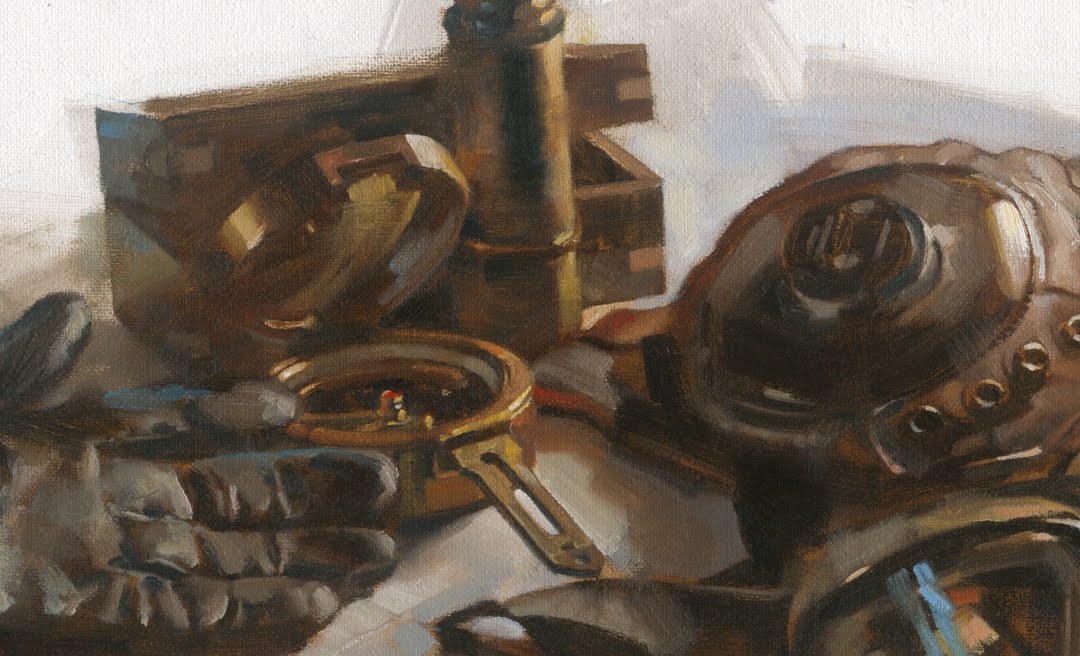
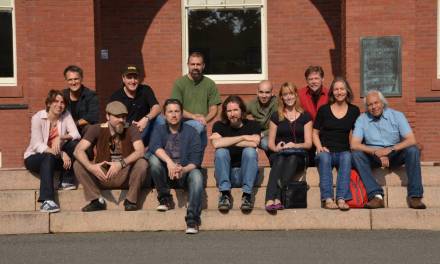

Thank you Greg I really needed this post today…
It comes from a fear of being judged or the idea of the work being precious and if it isn't right the first time then somehow it is tied to the student's self worth. “I tried and I failed so I must not be good at this.” and it takes a lot of practice and confidence to come around to the mentality of ” I tried and I failed, but I do like this little bit here and I got this section's lighting right, so I just need to work on these other things for the next painting and it will be better.” I have found that framing critiques for my students in a way that focuses on what they did get right and pointing out what isn't working and needs to be worked on helps them forge this kind mindset. Once a student learns that they can fail but it isn't 100% all or nothing they are more willing to push themselves.
I disagree that the process of failure has to hurt. The antiquated mind set that failure is all or none and must be painful for you to learn anything is why students are so afraid to push themselves outside of their comfort-zone. Student's fair much better if they learn to take failure in stride. That failure doesn't hurt and there are no consequences from failing, only opportunities to learn from it. “I tried, I failed, I learned, next time I will fail better.” It isn't as if someone is going to cut your hands off if you screw up a painting or you will never get another chance to paint again.
Great post Greg. I think the culture in a broader sense is gradually becoming more and more aware of what a growth mindset is. The work of Carol Dweck and Lisa Blackwell backs up so much of what you're saying here.
https://alumni.stanford.edu/get/page/magazine/article/?article_id=32124
Good comments, All! Thanks for chiming in.
Stephen, thanks for that nice extra clarification in your first paragraph. Excellent. As for the disagreement, we're nearly saying the same thing. However, I'm not saying that failure has to hurt like cutting “your hands off if you screw up”…that's too far, certainly. I didn't mean that, and I don't think my expression had that black-or-white thinking in mind. But when failure doesn't create more effort, then a student can stall in their focus. What this post is about is to express to the interested blooming artist that they will run into this dilemma and will need to keep their minds from assuming it's easy.
It is a an antiquated mindset, I agree, and sad that you may have thought it sounded like that. Ultimately, I'm working to bring a fresh but practical perspective to the process of training to be an artist. There's much more to direct a student toward here, and if you are coaching them and telling them these things along the way, then I salute you. That's exactly what they need: someone to guide them through it. Words on a blog just don't explain the full picture.
Glad you wrote in.
Greg
Tobias, yes! Growth Mindset is what is warranted here for all students and professionals. I love that stuff. So practical and yet unencumbered.
When skills overwhelm talent, the result can be magical.
Did my comment get removed for some reason? I thought it posted correctly…?
Didn't see it, bluefooted….
Oh well… Thanks for this post – always good to be reminded that it's okay to fail.
It's nearly always ok in your training, bluefooted. Many times, it's required. That's what allows art students to be able to weather the grief and keep going, without thinking that their career is over, or that they don't possess talent.
I redirect you to Mary Pickford's quote above.
The important part is to keep going….no matter how hard or easy.
We had a zillion spam posts today. It's totally possible I deleted it by accident. My apologies, if so.
Thank you Greg for your timely post, though I suppose it would be timely for many artists at some point. I never really experienced a debilitating sense of failure in my last 3 years of self teaching. Somewhere deep down I always knew that I could just pick up and get going again…that is what you especially have to do as a self-teacher with no mentors or curriculum.
Until the last week.
For some reason I took on a challenge to work on something that was vastly outside my comfort zone and it has basically hamstrung me. It is like I am a blundering idiot. I work for 3 hours on a piece, only to discover that it was better 3 hours ago. I scrap it and start again. I have been doing this repeatedly for over 3 weeks for 10 different pieces…each one the same deal. I have restarted them at least 5 times over each.
I am still only halfway through the project, and I now pick up the tablet pen with loathing, and all I can say, is that in the middle of it all, somewhere deep down, I still know that I am learning a huge amount, and a huge lesson that I can't necessarily relish now, but will reap benefits down the line.
So I just wanted to say YES. Fail….it sucks….but…..well hat's all. it sucks.
We just have to get up again and continue on.
Hey Monkeybread! That's the spirit! It DOES suck, but you've managed to DO what I didn't even attempt to write about in conjunction with failure just yet (another post sometime).
And that is: generating and maintaining the visual and emotional image of yourself as successful with the current piece, having gotten through the grief and gaining a renewed sense of confidence and energy to…
KEEP GOING.
Thanks, and all best of luck for the finish! You ROCK!
Greg
I failed super hard at IMC (and thanks to Dan dos Santos for helping bail me out of that failure :P) and it actually helped loosen me up, freeing me to “just paint” again. Failure is an important tool in development! Great post, Greg, thanks!
(sketchinger.com)
This article hit the nail on the head for me and I am honestly thankful for it. I've been giving myself the same mental pep talk every day for the past few months. I'm at a point in my career where my style is cohesive and engaging, but my portfolio needs diverse pieces to be more marketable and increase my chances of impressing an art director.
My love and preference is to do illustrations featuring portraits. In fact, those are the pieces that have gotten attention from Spectrum and Creative Quarterly. However, I feel it isn't enough. I'm currently diving out of my comfort zone to produce illustrations with stronger composition, more narrative and characters within a landscape. Often I get overwhelmed with fears of failure, but you gotta push on anyway. Lauren Panepinto had a great article about procrastinating that was very helpful in this area: http://muddycolors.blogspot.com/2014/03/the-four-reasons-you-and-i-dont-get.html
Thank you again for this awesome article. It honestly was exactly what I needed. Muddy Colors has been a beacon for great advice throughout my career.
– Ashly Lovett
( ashlylovett.com )
Ahem…: )….I did one, too, Ashley:
http://muddycolors.blogspot.com/2012/05/10-things-i-rememberabout.html
(The blog's search mode is quite awful.)
More narrative, designing scenes, and working with figures in landscape, or cityscape, or even a room are all good things to focus on! Go after it. It will flesh out your book. Narrative is coming back very strong and those who can handle it will get the work. Genre artists have been painting this way a long time, but it's still viable and still necessary for a killer portfolio.
But don't give up on those portraits either. Being able to capture a likeness is paramount in the business.
Best,
Greg
Another great article! 🙂 Thank you for your words of advice.
Hi Greg.
Ever hear that old saw, “Failure is not an option”?
Of course you have.
But in truth, with me, it is a requirement. (Ha!)
See you in a couple of weeks…
Thomas
http://www.thomaskitts.com
Thank You for your honest sharing!